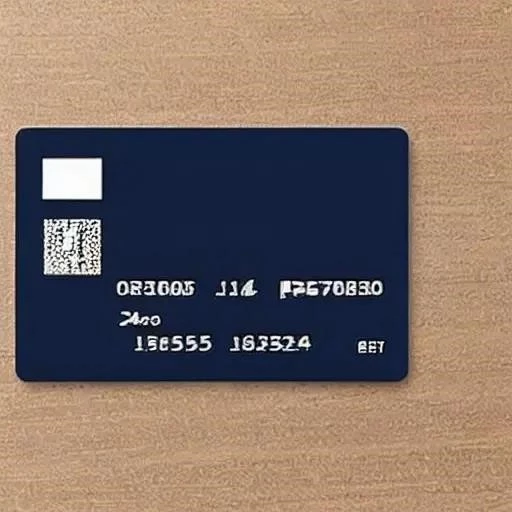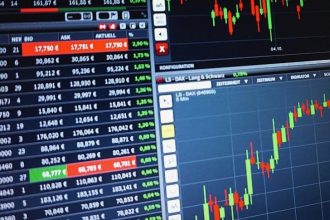In the vibrant, fast-paced world of foreign exchange, often simply called forex, opportunities for financial growth seem boundless. Millions of individuals globally are drawn to its alluring dynamism, captivated by the prospect of trading currencies from the comfort of their homes or bustling office desks. This expansive market, where trillions of dollars exchange hands daily, represents the largest financial arena on Earth, promising both remarkable accessibility and substantial potential returns. Yet, beneath the surface of sophisticated algorithms and real-time market fluctuations, a fundamental question often arises for newcomers contemplating entry: “Does forex require your ID?”
Indeed, the short answer to this crucial inquiry is a resounding “yes,” but the rationale behind this seemingly straightforward requirement is far more intricate and profoundly significant than many initially perceive. Far from being an arbitrary bureaucratic hurdle, ID verification serves as the indispensable bedrock of a secure, transparent, and ultimately legitimate global trading ecosystem. It’s not merely about confirming your identity; it’s about safeguarding every participant, preventing illicit activities, and fostering an environment of unwavering trust where global transactions can flourish unimpeded. Understanding this foundational layer is absolutely paramount for anyone aspiring to navigate the complex yet immensely rewarding currents of forex trading.
| Category | Key Information & Purpose | Reference Link |
|---|---|---|
| What is KYC? | Know Your Customer: A critical process used by financial institutions globally to verify the identity of their clients and thoroughly assess their suitability, along with the potential risks of illegal intentions for the business relationship. It’s a fundamental component of preventing financial fraud and identity theft. | FCA: Know Your Customer |
| What is AML? | Anti-Money Laundering: A comprehensive set of procedures, laws, and regulations meticulously designed to stop the practice of generating income through illegal actions. KYC is an essential part of AML compliance, ensuring that all funds being traded are legitimate and ethically sourced. | |
| Why is ID Required? | To ensure strict regulatory compliance, significantly enhance market security, proactively prevent severe financial crimes (such as money laundering and terrorist financing), robustly protect individual traders from fraud, and systematically build trust in the global financial system’s integrity. | |
| Common Documents Needed | Typically includes a Government-issued Photo ID (e.g., a valid passport, national ID card, or driver’s license) and Proof of Residency (e.g., a recent utility bill, bank statement, or tax return, generally not older than 3-6 months). | |
| Benefits for Traders | Provides a significantly safer and more reliable trading environment, ensures legitimate and secure market access, rigorously protects personal funds, facilitates smoother and more equitable dispute resolution, and fosters deep confidence in both brokers and the overall market integrity. | |
| Key Regulatory Bodies | Examples of influential bodies include the Financial Conduct Authority (FCA) in the UK, the Cyprus Securities and Exchange Commission (CySEC), the Australian Securities and Investments Commission (ASIC), and the National Futures Association (NFA) in the US. These agencies rigorously mandate ID verification. |
This rigorous identification process, commonly known as ‘Know Your Customer’ (KYC) and ‘Anti-Money Laundering’ (AML), isn’t exclusively unique to forex. It represents a global standard permeating banking, investments, and virtually every regulated financial service across continents. By integrating insights from established financial governance, regulatory bodies worldwide have meticulously crafted a robust framework, mandating that brokers painstakingly verify the identities of all their clients. This isn’t merely bureaucratic red tape; it’s a remarkably effective shield against nefarious activities, transforming the digital trading landscape into a more accountable and trustworthy domain.
Consider the analogy of a highly secure vault. Just as a bank rigorously requires your identification to access your funds, thereby ensuring only legitimate account owners can initiate transactions, reputable forex brokers demand your ID to definitively confirm that you are precisely who you claim to be. This unwavering diligence actively prevents fraudsters from opening accounts under false pretenses, thereby safeguarding both the individual trader and the broader market from potential exploitation. Industry leaders like IG Markets, eToro, and FXCM, operating under stringent regulatory oversight from respected bodies such as the UK’s FCA or Cyprus’s CySEC, powerfully exemplify this unwavering commitment, requiring comprehensive documentation for secure account activation.
The verification process itself is remarkably straightforward for legitimate traders. Typically, you’ll be asked to provide a government-issued photo ID, such as a valid passport or driver’s license, alongside proof of residency, like a recent utility bill or bank statement. These essential documents are then securely reviewed, often utilizing advanced digital verification technologies that can authenticate identities swiftly and with impressive accuracy. This streamlined approach minimizes inconvenience while simultaneously maximizing security, a clear testament to the groundbreaking technological advancements in modern financial compliance.
Looking ahead, the commitment to robust ID verification is only set to deepen, vigorously propelled by evolving global financial regulations and the continuous, collaborative fight against cybercrime. Far from being a hindrance, this mandatory step proactively empowers traders, establishing a foundational layer of trust that is absolutely indispensable for sustained success in the global forex arena. It profoundly assures participants that they are operating within a legitimate, well-regulated ecosystem, free from the pervasive threats of fraud and illicit financial flows. Therefore, embracing the ID verification process is not just a regulatory obligation; it is a vital, forward-looking investment in your own financial safety and the enduring integrity of the dynamic market you choose to engage with.






